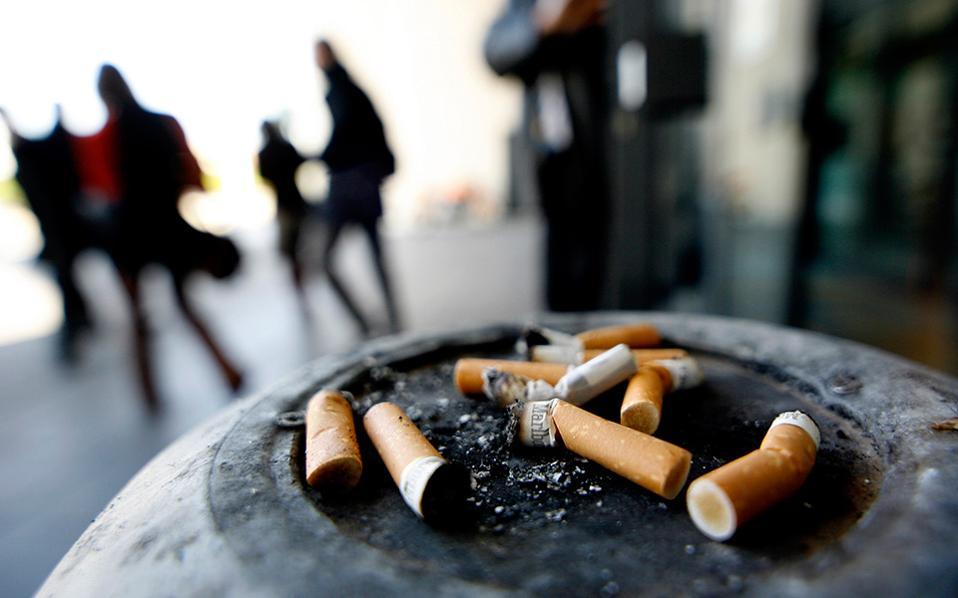Want smokes for 1.50 euros? Greeks lose millions of tax on bad habits

On an unremarkable morning on Stournari street in downtown Athens, just a few blocks away from the epicenter of every riot the city has seen during its recent crisis years, two men of Asian origin politely and openly hawk cigarettes to passersby.
The illegal packs of RGD-branded smokes cost 1.50 euros ($1.70) each, less than half the price of 20 Marlboros or Prince at one of Greece’s ubiquitous street kiosks.
As Prime Minister Alexis Tsipras walks another tightrope between creditor demands for additional belt tightening and a social backlash, the scene exposes an unhealthy truth: Greeks could smoke, drink and gamble their way out of their next financial hole, if only they were taxed on all of it.
“Illicit cigarette and bulk tobacco trade strips the Greek state from significant revenue each year that could be used for paying pensions, salaries, and social benefits,” said Iakovos Kargarotos, vice-president of Philip Morris International’s affiliate in Greece, Papastratos AVES. “It creates a big public revenue hole that taxpayers have to fill.”
Smuggling racket
More than 4 billion illegal cigarettes are being sold in Greece each year, according to the latest data from Papastratos. Based on the roughly 85 percent tax on a pack of 20, the duty alone would have brought 670 million euros of annual revenue. That’s more than the increase in employee contributions to pensions that triggered the latest wave of demonstrations and tear gas in Athens last week.
Clamping down on tax evasion has been a source of friction between Greece and its creditors since 2010, when Europe’s most indebted state first signed a rescue package backed by euro area and International Monetary Fund loans.
A 15-minute stroll from the Greek Parliament, the contraband cigarettes in red packaging called “illicit whites” are being sold for about 12 euros a carton in streets like Stournari off the busy Omonoia Square, a crossroads for migrants looking for work.
The RGD smokes appear to originate from China, but others come from Egypt and Pakistan, reaching Greece by sea on “ghost ships” and making the country a major hub for the illegal trade just as border patrols are overwhelmed by the flow of refugees from Syria.
Some local tobacco farmers also sell bulk leaves, untaxed, directly to consumers, even openly over the Internet. It goes for 25 euros a kilogram, according to one advertisement.
Even cheaper
Greece has one of the highest rates of smoking in the world. It costs more than 3 billion euros a year in hospital treatment to lost working hours, Kostas Athanasakis, a researcher at Greece’s National School of Public Health, estimated.
A pack of cigarettes in Greece is among the cheapest in the European Union. Yet more than 20 percent of those smoked are counterfeit, contraband or untaxed, according to a Nielsen study cited by a local tobacco industry initiative against illegal products.
Labor and Social Security Minister George Katrougalos has said the government wants to raise an additional 600 million euros through increased pension contributions this year.
The proposals sparked a series of strikes, while at least twice that amount could be raised from taxing under-the-radar tobacco, alcohol, diesel and gambling, industry estimates show. The Greek Finance Ministry didn’t respond to phone calls and an e-mail seeking comment on initiatives to collect the money.
Greek spirit
Take the local moonshine: about 24 million liters of untaxed tsipouro, a traditional spirit from grape marc, are being consumed every year in Greece, according to local distiller Kostas Tsililis. It results in an annual tax loss of at least 200 million euros.
Greek law allows the production of it locally in uncontrolled steel vats, under 48-hour licensing, and the bulk sale of the popular spirit under a preferential tax rate. The fact that no bottling is required means that there’s way to keep track, Tsililis said.
“It’s the only comestible product that’s legally sold without any control,” he said. “They prefer to cut grandma’s pension, rather than touch smugglers.”
It’s a similar story for fuel, with more than 200 million euros lost annually from smuggling, according to the Hellenic Petroleum Marketing Companies Association, or Seepe. The industry group says methods include mixing tax-free shipping diesel with heating oil, as well as falsely declaring fuel exports to escape taxation.
Then there’s gambling. Hundreds of thousands of Greeks bet using unregulated and unlicensed companies, mostly online. It’s so rife that the Hellenic Gaming Commission can’t make a safe estimate about the size of the illicit market, according to Antonis Stergiotis, its president.
Tackling illegal trade in everyday products like cigarettes and fuel should be simple compared with white-collar tax fraud via offshore bank accounts, but the politics is more complicated, said Ilias Lekkos, chief economist at Piraeus Bank in Athens.
“The fact that large segments of Greek society benefit from tax evasion makes a clampdown an extremely difficult,” he said.
[Bloomberg]





